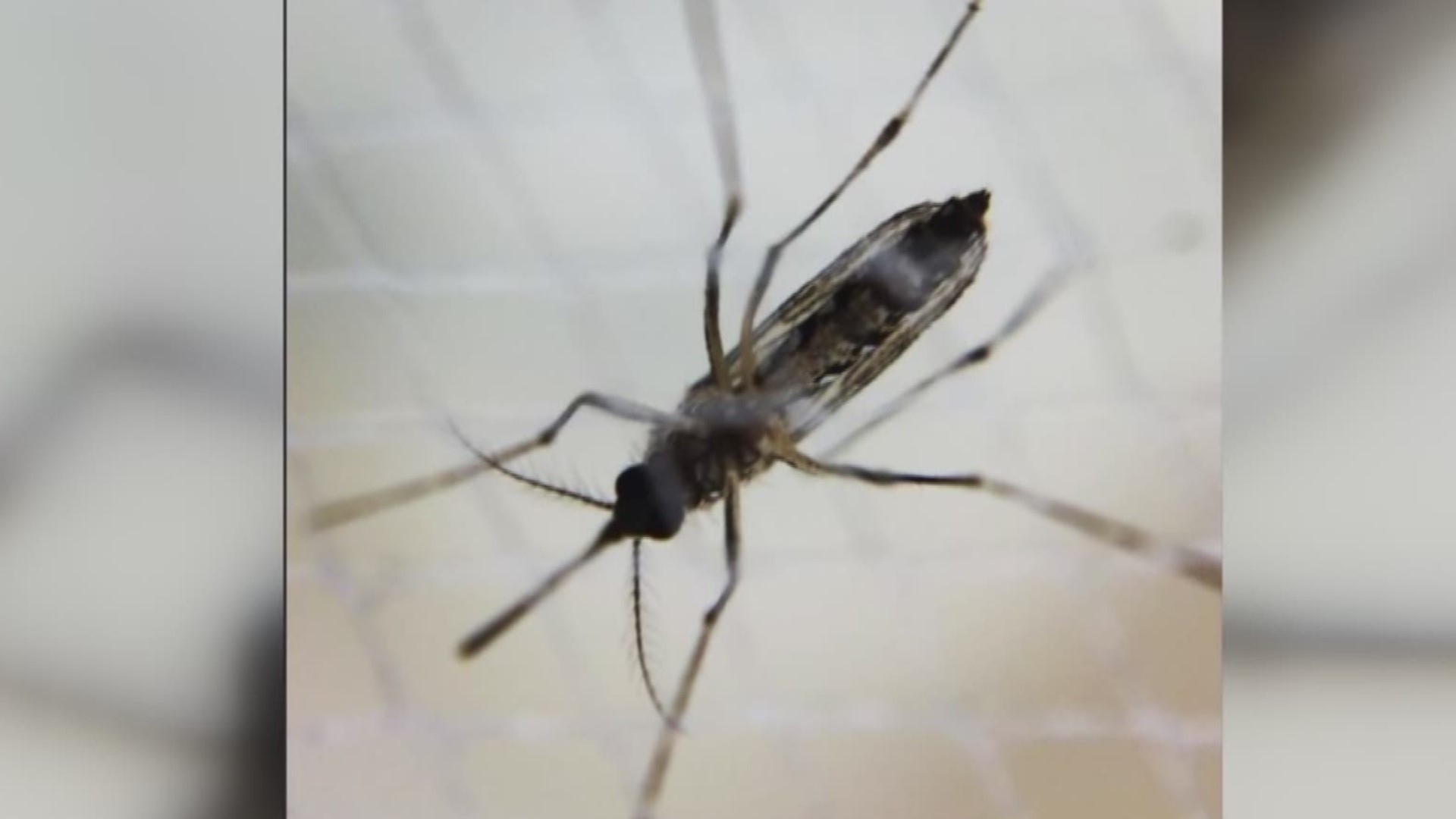ST. PETERSBURG, Fla. — Florida leads the nation in the number of dengue fever-related cases, and there's a new one to add following a report in Hillsborough County.
There have been five -- now six, counting the Tampa Bay report -- locally-transmitted cases of the mosquito-borne dengue fever, plus 174 cases associated with travel through Oct. 2, according to the Centers for Disease Control and Prevention.
It might come as no surprise a state known for its sunshine, alligators and yes, mosquitoes, would harbor the most number of cases.
So what is dengue, exactly?
The bite of an infected Aedes species of mosquito spreads dengue viruses, the CDC says. Dengue is common in Florida but is a widespread threat with more than 100 countries particularly at risk. About 400 million people get infected worldwide, with 100 million getting sick and 22,000 dying from cases of severe dengue.
Only about one in four people infected with dengue fever get sick, according to the CDC. And for those who do, symptoms can range from mild or severe, lasting anywhere from two days to a week or so.
Those symptoms run the gamut:
- Fever
- Headache
- Eye, muscle or joint pain
- Rash
- Nausea
- Vomiting
RELATED: West Nile virus reported in Florida
Healthcare officials say symptoms can turn severe within a few hours, and it's a medical emergency if that occurs as people can experience shock, internal bleeding and death.
Some of the warning signs of severe dengue include stomach pain, frequent vomiting, bleeding and feeling tired.
The CDC says there is not one sort of medication used to treat the viruses.
However, there are few ways to limit the virus' spread, and that's largely helping to control the mosquito population. The Hillsborough County Health Department lists some easy steps:
- Drain water from garbage cans, house gutters, buckets, pool covers, coolers, toys, flower pots or any other containers where sprinkler or rainwater has collected.
- Discard old tires, drums, bottles, cans, pots and pans, broken appliances and other items that aren't being used.
- Empty and clean birdbaths and pet's water bowls at least once or twice a week.
- Protect boats and vehicles from rain with tarps that don't accumulate water.
- Maintain swimming pools in good condition and empty swimming pools when not in use.
If you're heading outdoors, cover any sort of exposed skin with clothing or repellent. Repellents with DEET, picaridin, oil of lemon eucalyptus, para-menthane-diol and IR3535 are effective, the health department says.
What other people are reading right now:
- Jennifer Kesse vanished without a trace nearly 14 years ago. Her parents search for her every day.
- Fortnite players left staring at black hole for hours after 'The End' event
- Polk County man accused of killing woman, sexually battering another arrested in Atlanta
- New cancer vaccine trial helped kill cancer cells in Mayo patient
- Suspected burglar stabbed to death by homeowner in St. Pete, detectives say
FREE 10NEWS APP:



